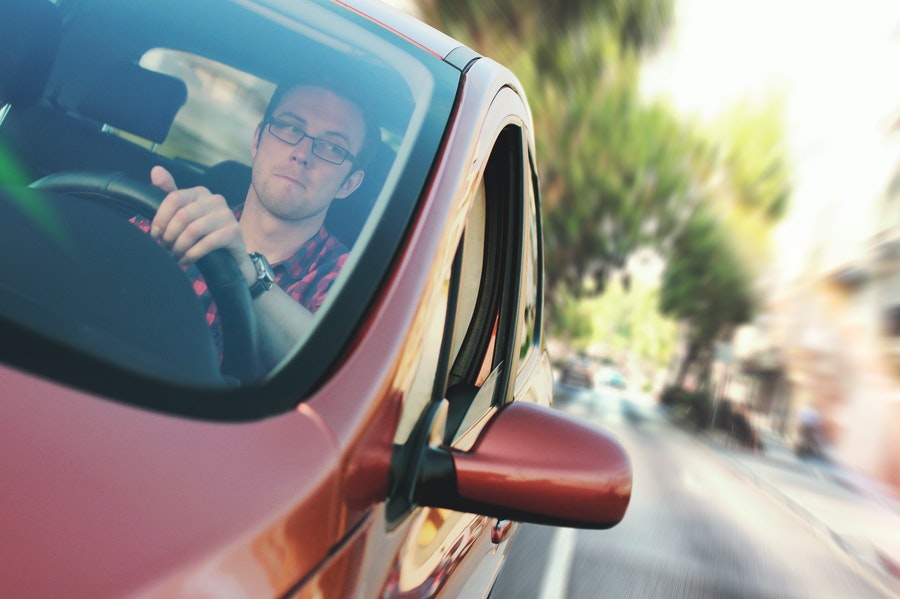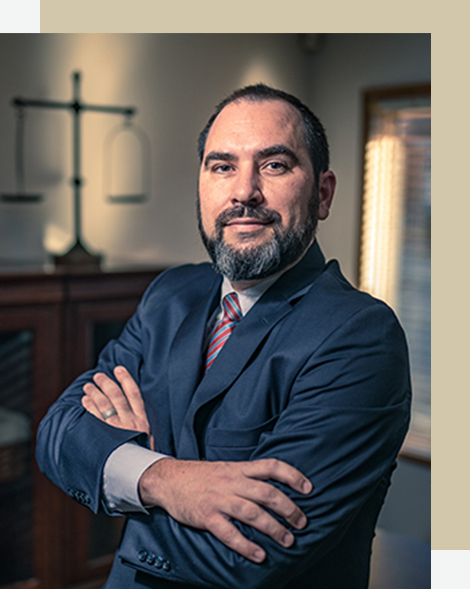Get a Lawyer if Road Rage Hurts You in a Crash

Every driver may experience frustration or anger when behind the wheel. However, most drivers do not let their anger get the best of them while driving. But some drivers lose their temper and engage in dangerous driving behaviors, endangering the lives of others on the road. This is called road rage.
According to a study by the
AAA Exchange, nearly 80 percent of drivers admitted to expressing significant anger or aggression behind the wheel in the past 30 days. There is no excuse for becoming overly hostile while operating a vehicle. If a person suffers injuries because of someone else’s inability to control their emotions, the injured victim deserves compensation for their injuries and losses.
Signs of Road Rage
Road rage is aggressive, hostile, or angry behavior exhibited by drivers of motor vehicles.
Because aggressive and angry motorists are often willing to take risks and endanger the safety of others, watch out for:
- Rolling down the window to shout and yell from the vehicle
- Honking the horn
- Cutting off other vehicles
- Changing lanes without using an indicator
- Intentionally braking
- Suddenly accelerating or decelerating
- Tailgating
- Flashing high beam lights
- Making rude or insulting gestures
- Weaving in and out of lanes
- Pursuing other drivers
- Stopping or pulling over to start a confrontation
- Running other drivers off the road
If you notice any of these signs of road rage, stay away from the driver as much as possible. If the driver is raging toward you, stay calm and do not let their hostile behavior fuel your own road rage. If the other driver takes it too far, call the police.
Causes of Road Rage
There are a number of factors that contribute to road rage incidents.
A driver is more likely to experience aggression behind the wheel due to:
- Congested roads. When traffic is heavy, drivers are more likely to become aggressive and lose their calm. Findings of a study showed that crowded roads boost a driver’s anger behind the wheel.
- Being in a hurry. Drivers are more likely to become frustrated and aggressive when driving if they are worried about being late. Being late makes drivers more irritable and impatient, increasing the likelihood of risky maneuvers.
- The driving behavior of other motorists. In many cases, road rage often stems from someone else’s behavior on the road. For example, if another driver cuts you off, you can become aggressive because of that behavior.
- Anger management issues. Motorists with anger management issues are more likely to drive in an aggressive or hostile manner, putting other people on the road at risk of harm.
Regardless of what caused the driver to experience road rage, they can be held accountable for their failure to exercise due care. In fact, depending on the circumstances of the incident, a driver who engaged in road rage may be convicted of a criminal offense.
Types of Road Rage
Aggressive drivers can engage in different types of behaviors that constitute road rage.
Broadly speaking, we can break road rage into three types:
- Verbal acts. Often, raging drivers might be cursing, yelling, or shouting at other drivers, or even saying obscene things.
- Physical acts. Common examples of physical acts include making rude hand gestures (e.g., middle finger) and exiting a vehicle to start a physical confrontation.
- Making dangerous maneuvers. When a motorist engages in risky maneuvers such as cutting off other drivers, trying to run a driver off the road, tailgating, brake checking, or others, they put themselves and other drivers at risk of harm.
If you were in a car accident involving a raging driver, contact a skilled attorney to help you pursue compensation for your damages.
How to Prove Fault in a Road Rage Accident?
If you suffered injuries in a car accident caused by road rage, you need to prove the other driver’s fault to obtain compensation for your financial losses and injuries.
When filing a car accident claim against the raging driver, you need to establish:
- Duty of care
- Breach
- Causation
- Damages
Collecting evidence becomes crucial when proving fault in a road rage accident. Some of the most valuable pieces of evidence to prove fault include witness statements, skid marks, the extent of damage to the vehicle, and surveillance/traffic camera footage, among others.
Recoverable Damages in Road Rage Car Accidents
As a victim of a road rage accident, you can seek compensation for your economic and non-economic damages.
Some of the compensable damages that you might recover in your personal injury case include:
- Medical expenses
- Lost wages
- Property damage
- Pain and suffering
- Diminished earning capacity
- Loss of enjoyment of life
- Loss of consortium
Each case is unique, which is why recoverable damages vary greatly depending on the circumstances of the incident. The value of your personal injury claim depends on your injuries, whether or not you can return to work, the cost of medical treatment, your emotional well-being after the accident, and many other factors.
How Can a Road Rage Accident Attorney Help?
Dealing with a raging driver can be intimidating and frustrating. If you were involved in a car crash with an aggressive or angry driver, you might want to consider speaking with an attorney to help you pursue the compensation to which you are entitled.
You can focus on your recovery while your attorney handles the legal aspects of your claim, including:
- Provide you with legal advice and guidance throughout your legal case
- Explain your options for compensation
- Investigate the accident and determine liability
- Gather evidence to prove the other driver’s fault
- Estimate your losses and damages to determine a fair settlement amount
- Communicate with insurance companies on your behalf
- Prepare your case for trial and represent your best interests in court
Consider contacting a
car accident attorney to help you pursue all available legal remedies under the law to obtain fair and full compensation on your behalf.
Adam B. Lawler
Attorney at Law / Partner
Adam Lawler is the founder of Lawler Brown. Adam is a 2004 graduate of Saint Louis University School of Law. Adam worked for a local firm until founding the Lawler Brown in 2009. Adam’s practice areas focus in Personal Injury, Business, Real Estate, Probate/Trust/Estate Administration and general litigation.
Author's Bio
 Every driver may experience frustration or anger when behind the wheel. However, most drivers do not let their anger get the best of them while driving. But some drivers lose their temper and engage in dangerous driving behaviors, endangering the lives of others on the road. This is called road rage.
According to a study by the AAA Exchange, nearly 80 percent of drivers admitted to expressing significant anger or aggression behind the wheel in the past 30 days. There is no excuse for becoming overly hostile while operating a vehicle. If a person suffers injuries because of someone else’s inability to control their emotions, the injured victim deserves compensation for their injuries and losses.
Every driver may experience frustration or anger when behind the wheel. However, most drivers do not let their anger get the best of them while driving. But some drivers lose their temper and engage in dangerous driving behaviors, endangering the lives of others on the road. This is called road rage.
According to a study by the AAA Exchange, nearly 80 percent of drivers admitted to expressing significant anger or aggression behind the wheel in the past 30 days. There is no excuse for becoming overly hostile while operating a vehicle. If a person suffers injuries because of someone else’s inability to control their emotions, the injured victim deserves compensation for their injuries and losses.
